OTHERLANDS COLLABORATION #16
Date: Jan. 15, 2020 • Location: Kolkata, India
I woke up at 515a, shook my daughter, and we were picked up by 6a, on our way to the Kolkata’s channel 8 TV station, Aakash Aath. This morning would mark my debut India TV appearance. I had been invited by Baul and West Bengali folk singer Dipannita Acharya to join her on the Good Morning Aakash show, live from 7a-930a.
*To hear more about Dipannita’s music and projects, please visit her:
I wasn't quite sure what was going to happen. I knew there was another Baul singer from the village of Shantiniketan on the show, and possibly a mandolinist and percussionist joining Dipannita. I had received three songs via Whatsapp of voice, tanpura and ektara (a one string drone-type plucked Baul instrument). There would be no rehearsal...and more songs. In all, we ended up being eight musicians: four with Dipannita, two with Rina Das Baul (the other Baul singer), and me.
Playing the show ended up great, and a bit surreal since there was no rehearsal, and I couldn't understand the language. All musicians played with each other and many smiles were passed around. It helped me to have flautist Partho Saratha Das and dotara/banjo player Navonil Sarkar to lean on for direction on how to approach accompanying the singers.
Gurudas Das, Purnendu Das, Tanmoy Pan, Rina Das Baul, Dipannita Acharya, Rini, Me, Parthosarathi Das & Navonil Sarka
We played the three songs I had received previously (in addition to about five others), and on the last one, I realized I had made a big mistake. I recognized the melody...and I had learned it...but the rhythm was completely different than what I thought. There was an ektara pulse on my rehearsal tape and I had the time signature correct. But without any rhythmic accompaniment on the tape, and no countoff, I had to choose where beat 1 was. I picked the beat that was most natural sounding to me, but it was flat wrong. They gave me a solo and I turned the time around. About the moment I realized it happened, I noticed the flautist making subtle hand gestures to where the beat was supposed to be for the other musicians. I was owning the melody, but just not legally.
After the show, I got in a vehicle with Dipannita's group and headed north towards her house. Navonil would be playing dotara and Tanmoy Pan would be playing dubki. My daughter was along for the ride, not because she was interested in the TV taping, but because Dipannita had a son of the same age. Finally, we had met another kid that she could connect with.
Dipannita has a beautiful home and a flower garden covering her front yard. This was the inspiration for using the images from the Howrah Bridge flower marker in the video. (Note: the market was my start to a 10hr/12mi walk through Kolkata. Other images from the day can be seen in my collaboration with Arko Mukhaerjee).
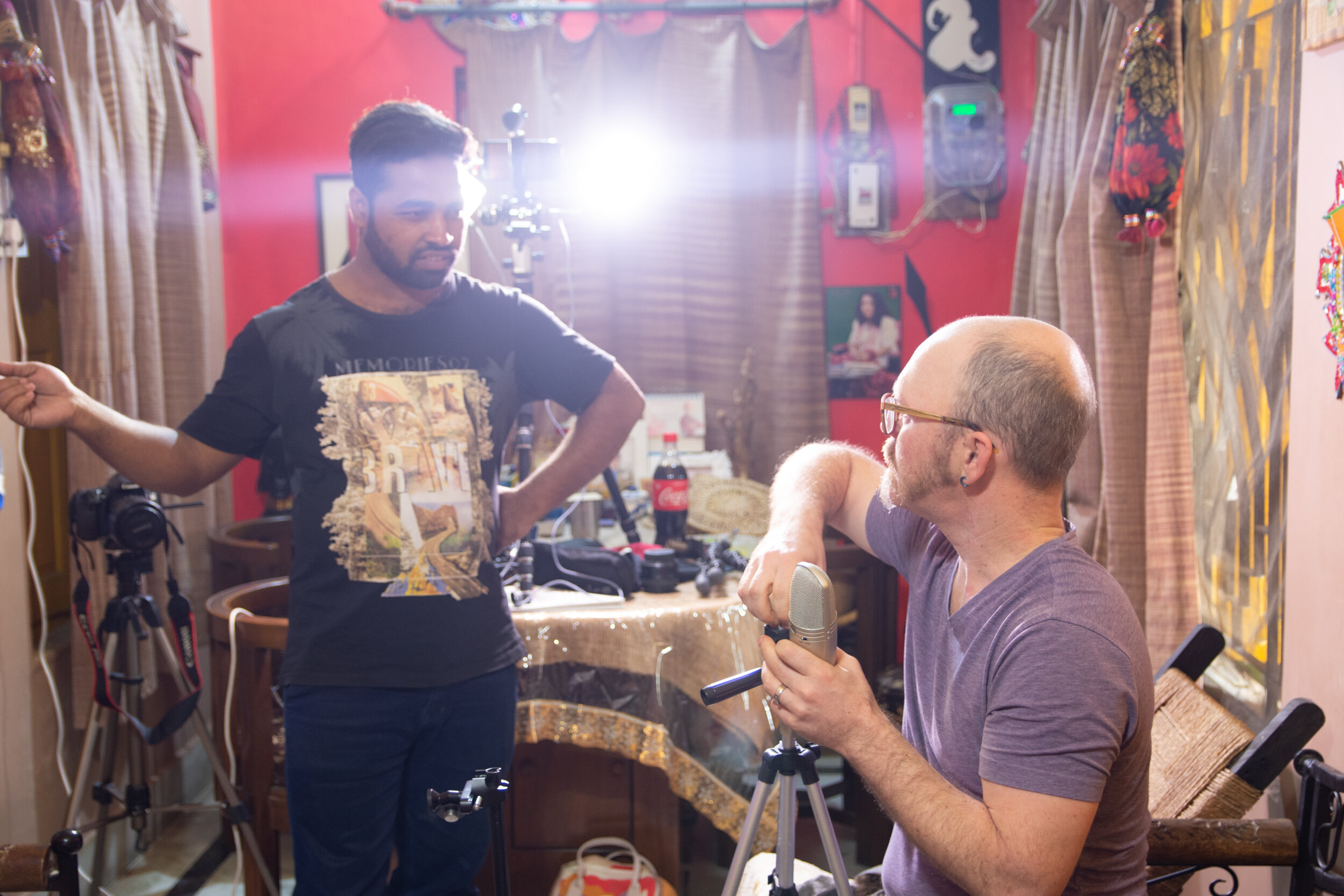
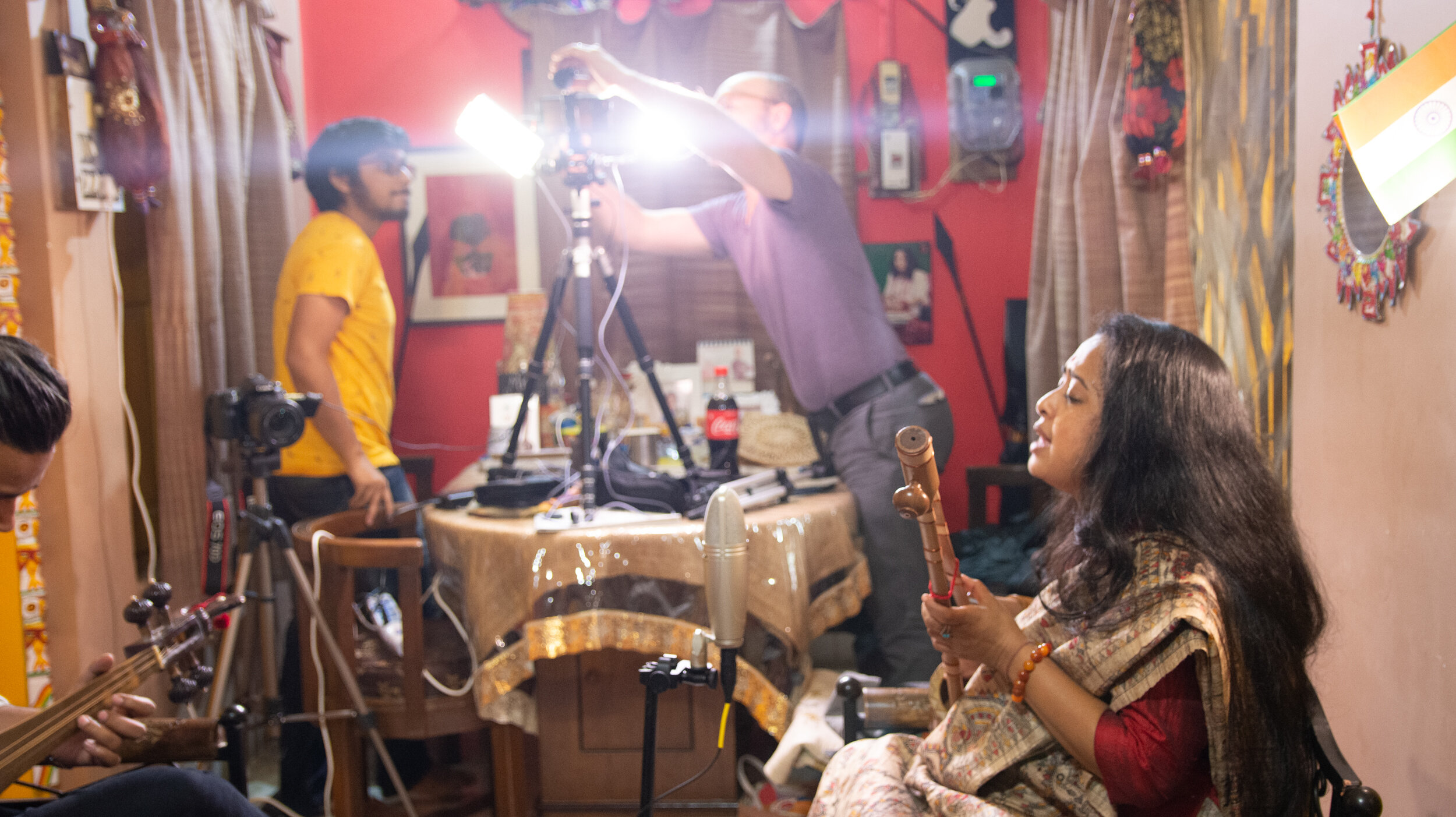
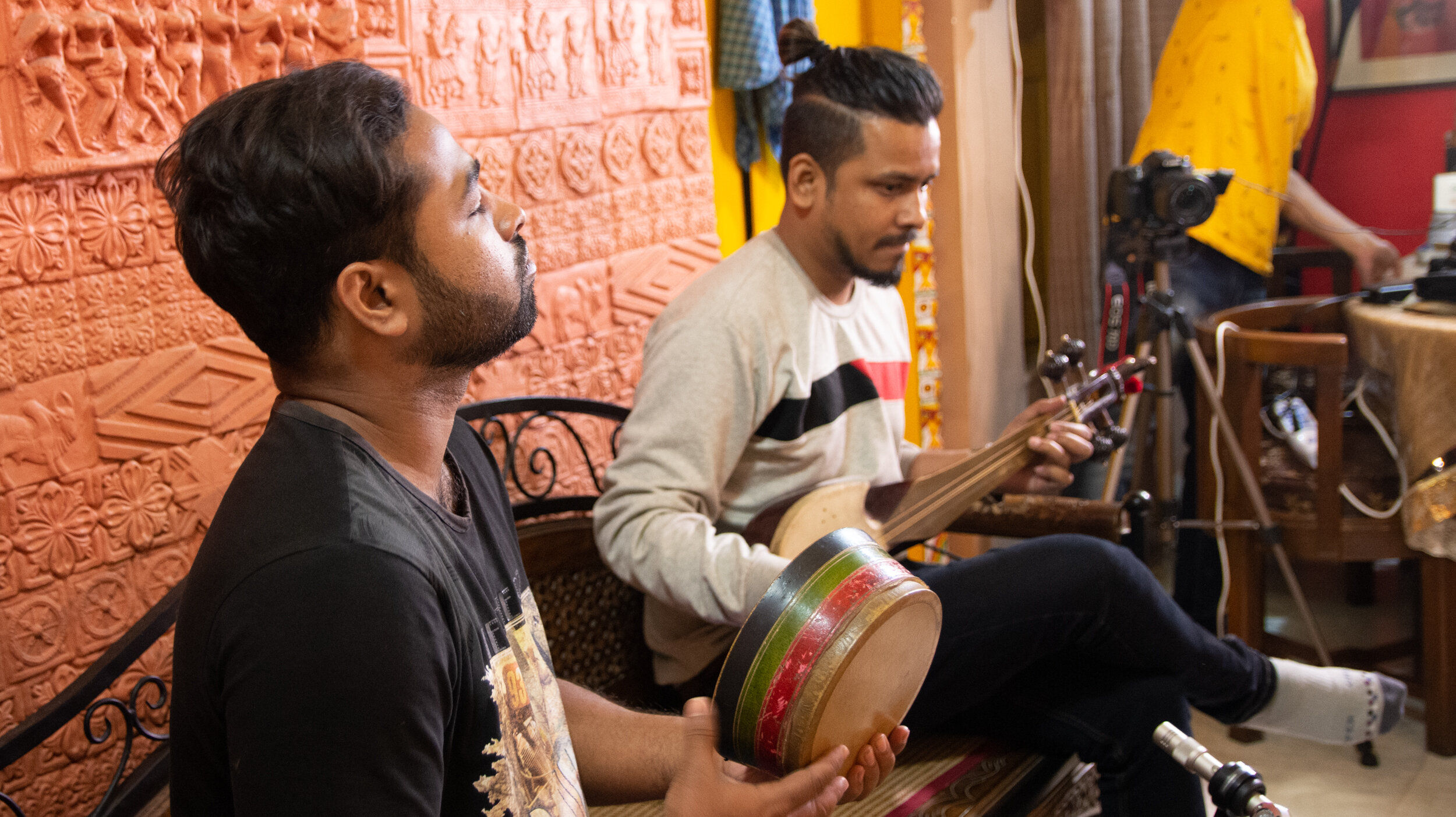
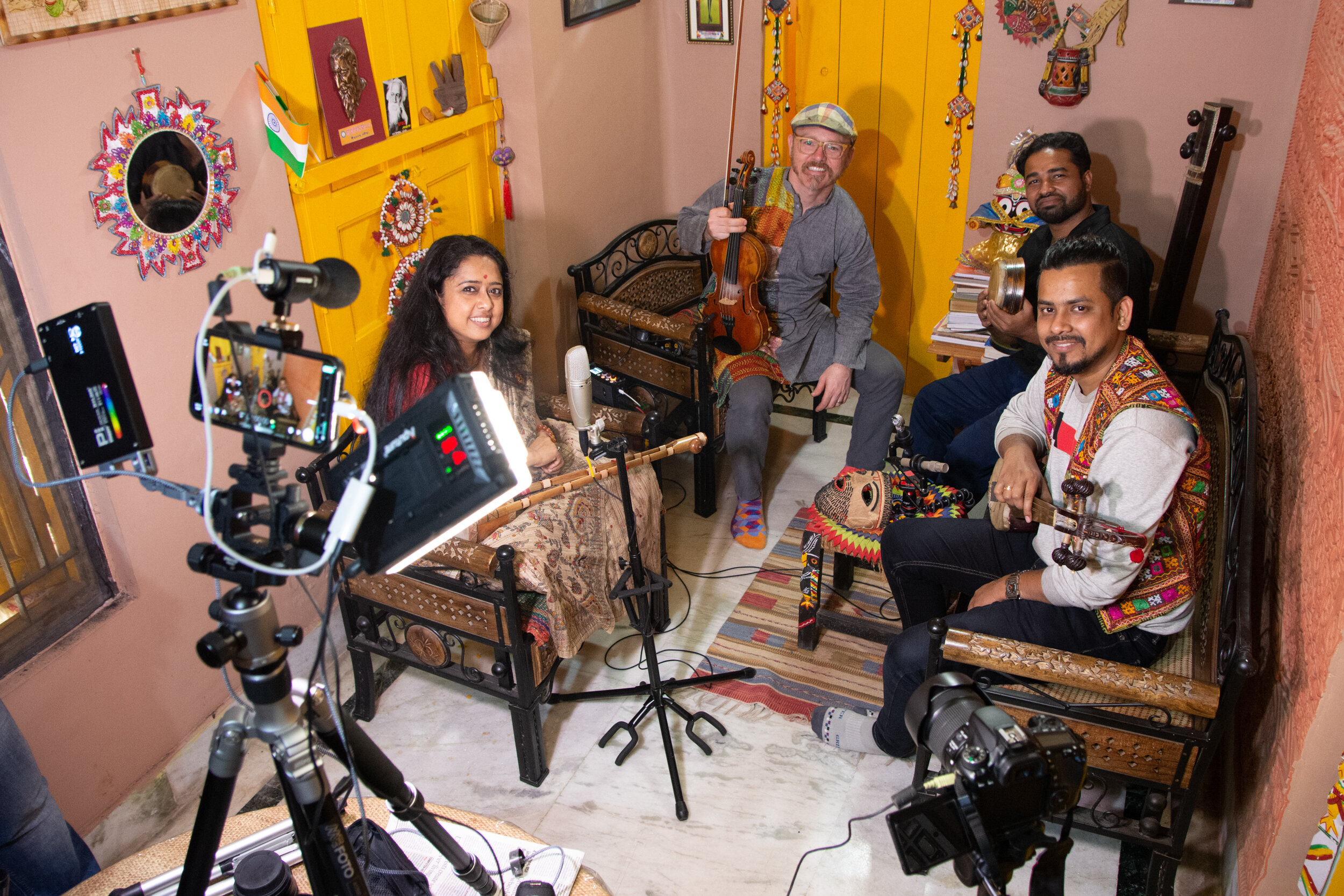
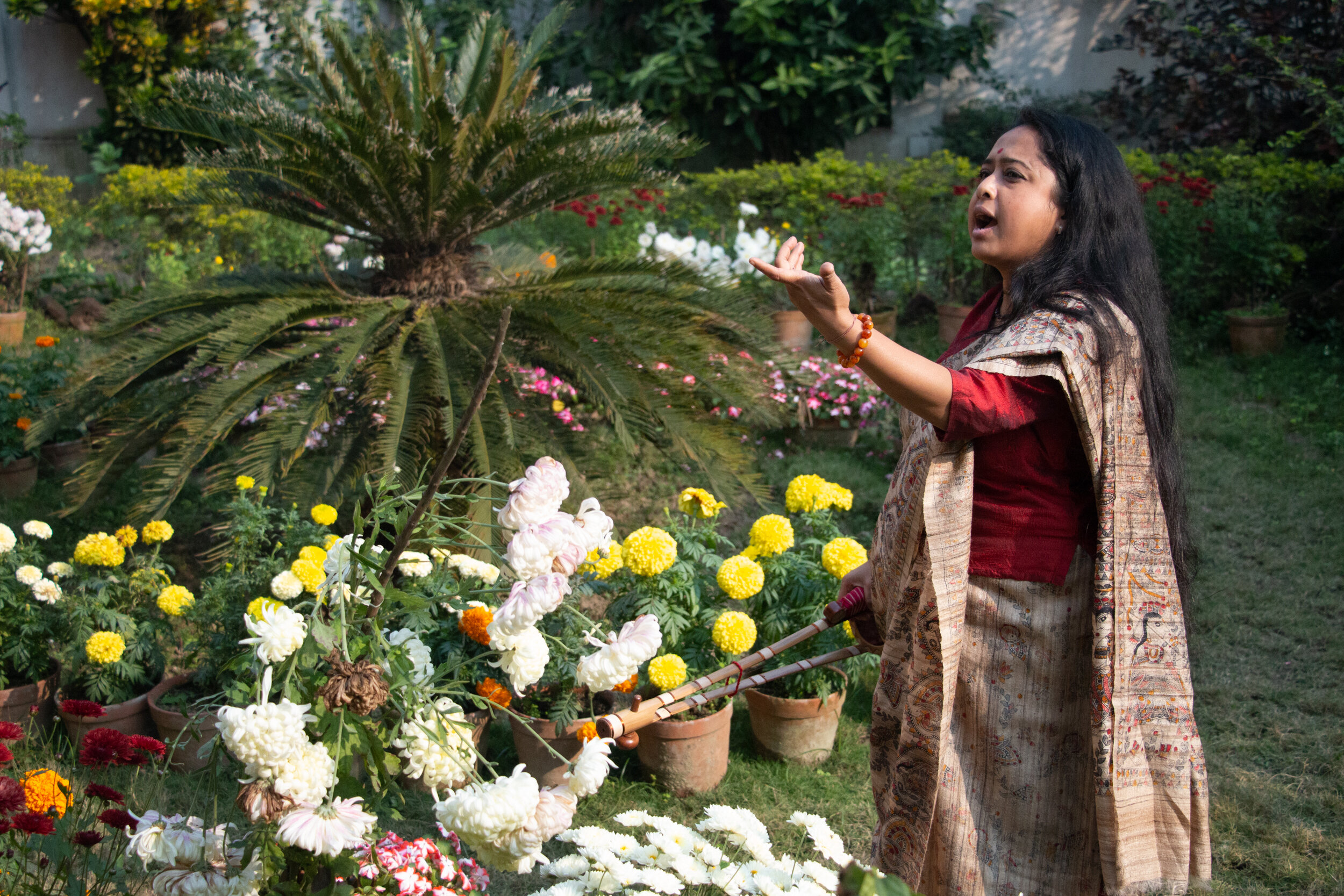
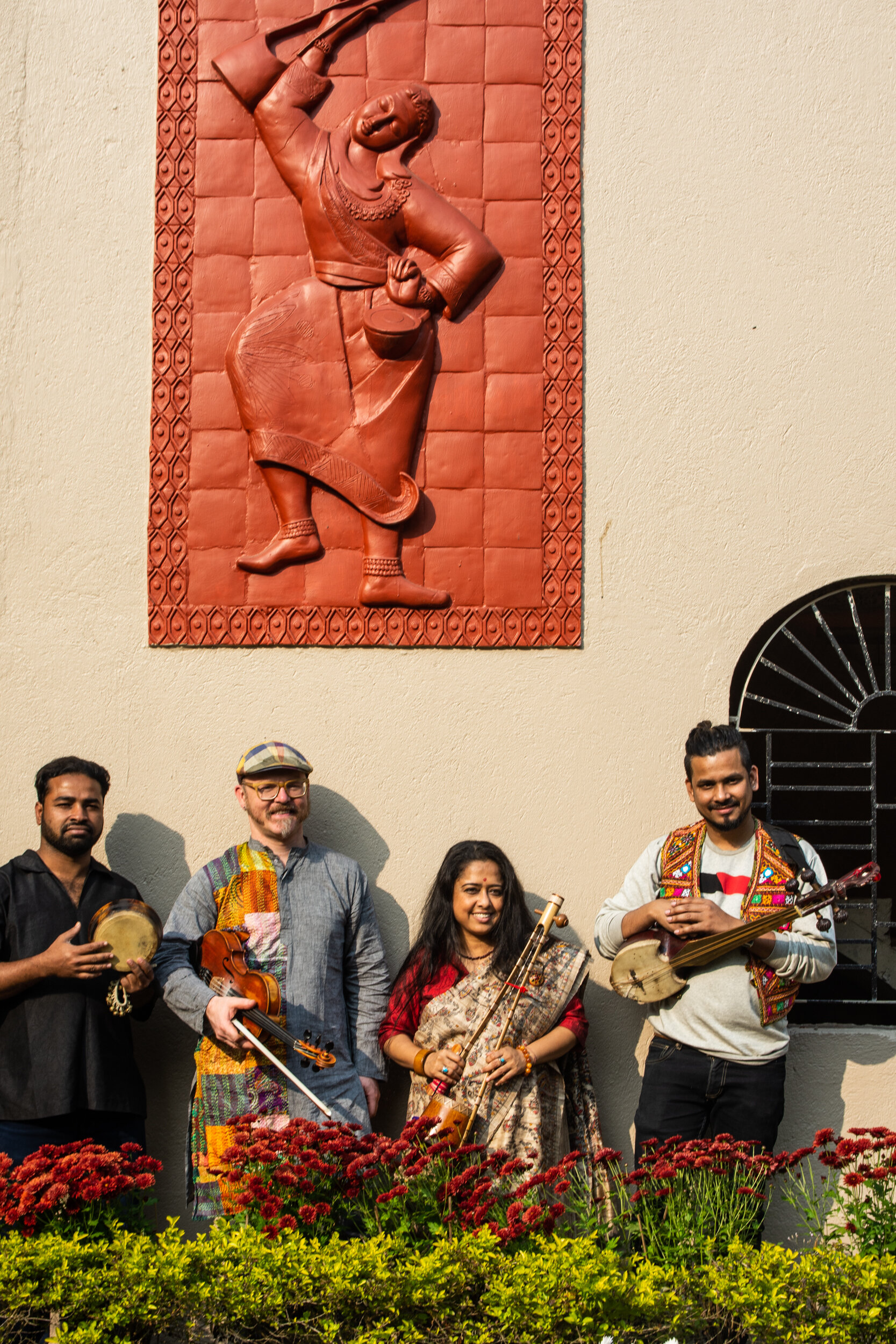
We would try two tunes today, and start with the more rhythmic one, Ronger Baroi—one we had played already, since that, in theory, would be the easier choice. Enter once again, my old friend with the challenging rhythm. It was quite tough. I explained my confusion and everyone was very helpful. At one time I was told, "It's simple, just think of it as one, two, one, two, etc." Yes it’s simple, and yes it did help a bit, but the force was strong within me and I kept getting pulled back.
Before the third take, I asked what the song was about. There are a few different layers.
The title is a word for "beloved" but not in a romantic way. It's like you would say "darling" in an endearing sense.
There's a farmer. He has a mouse problem. All his stored crops are being eaten. He gets a cat. But, the cat and the mouse become friends. The mouse is the "black" part of our personality. We think we can beat it, as small as a mouse that it is, but it is powerful.
The poet is saying to himself, "You are not aware of what is happening. You are foolish."
The manure that makes your crop good, the savings you have, you have given to others. You did not get the fruit from the tree, you got only the bark…it is of no use. What good you have, leave some for yourself. Make yourself and soul pure first, and then you can share it.
I asked Navonil to give me a countoff, and it was a huge help. I managed to tap my foot through most of the song, and got a good groove with some dynamics. It felt like we really played the song for the first time. I'm not sure if the song's meaning helped conceptually, but I think hearing it helped clear my mind.
We took a break for lunch and decided to try the next song sitting out in the flower garden. It was around 4p by this time and the mosquitoes were coming out. We could only make it through two takes before we had to go inside, and Dipannita said "this is their time." An instrumental excerpt from this garden song is under the intro of the video.
It was a hard fought day, starting with TV and ending with mosquitoes, with great musicians who were also lovely people willing to help me through my dark, rhythmic moments. Thank you Dipannita, Navonil, and Tanmoy!
Photos by Subhrajyoti Talapatra & Ushnish Kanti Chakraborty
As a closing remark, for as many repetitions as I've listened to this song while mixing and editing the video, I still hear it one 8th note off. Otherlands.
CREDITS
Song: Ronger Baroi (Hason Raja)
Music Arranged by: Casey, Dipannita, Navonil & Tanmoy
Voice & Ektara: Dipannita Acharya
Dotara: Navonil Sakar
Dubki & Ghungru: Tanmoy Pan
Fiddle, Audio & Video: Casey Driessen
Additional Cameras: Subhrajyoti Talapatra & Ushnish Kanti Chakraborty
SPECIAL THANKS
Banglanatak dot com, Tojo Acharya, Emmette Driessen


